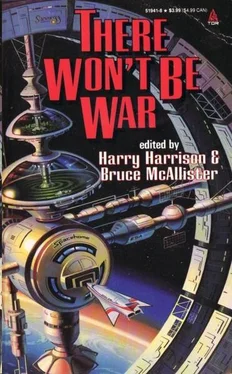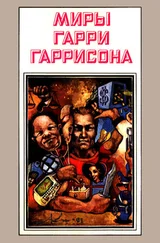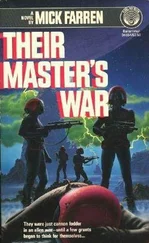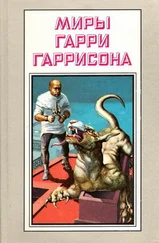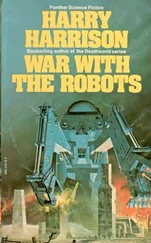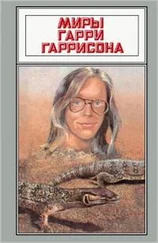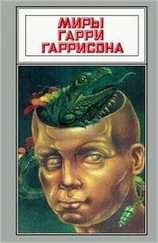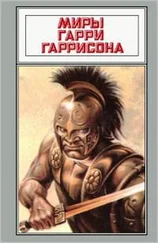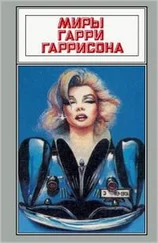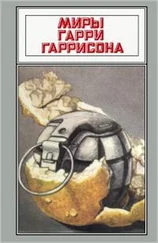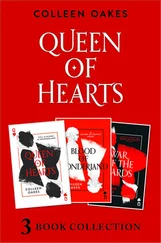“You are mine!”
“And you are mine, Princess. And now there is something we share.”
“A war.”
“Our war.”
“Yes.” Tightening her grip, she pulled me in again. “Yes.”
When I finally descended from the bus, my escorts stood stiffly around the limousine, sucking on perfumed cigarettes. They gasped at the sight of blood on my face and hands, the nail marks and bruises. The Princess’s bus roared and lumbered away, grinding through the carnage. I watched it until the taillights vanished, and thought I heard gunfire beginning in the distance. They couldn’t know it yet, but the cease-fire had ended.
“There was trouble?” asked an aide.
I pushed past him to the car, saying brusquely, “There will be no truce, no compromise. Take me home.“
The Peacemakers
Timothy Zahn
The World Peace Accords were signed January 1, 1992, to a flourish of propagandist trumpets from the major powers and almost deafening skepticism from everyone else. Yet in the first year, contrary to popular cynical expectation, no fewer than four major disputes between East and West were resolved peacefully. By year five a half-dozen long-standing Third World brush wars had been brought to a close; by year eight the message that peace implied progress and prosperity had penetrated even the densest of despots and cruelest of cultures.
By the tenth anniversary celebration the pattern was clear. War was well on its way to joining smallpox and the dodo bird in oblivion.
All the architects of the Accords were on hand in Geneva for the big bash, of course. It was unquestionably the media event of the decade, and for a solid week the assembled dignitaries generated enough quotes and photos and interviews to keep even the impossibly ravenous maw of the international media machine comfortably fed.
In all the noise and fury and videotape, no one paid much attention to Andrew Xavier Martin. No one except me.
Not unexpectedly, of course. On the surface, Martin was hardly one of the leading lights of the spectacle—his only official function during the drafting of the Accords had been to act as recorder and occasional pinch-hitting translator. But I had highly placed sources, and from those sources I had heard some highly intriguing whispers. Insubstantial whispers, not solid enough even to qualify as vague rumors. But I’d always been the type to play long odds, especially when the potential payoff was as big as this one was.
I tracked Martin down the evening of the second day, sitting alone in a corner of the hotel restaurant and watching with gentle amusement the attention being lavished on the Soviet delegation across the room. “Mr. Martin?” I asked, stepping up to his table.
He looked up. “Yes,” he acknowledged. “And you?”
“My name is Redmond Kelly,” I told him, offering my press card for his inspection. “I wonder if I might ask you a few questions.”
“Certainly,” he said, gesturing me to the chair opposite. “What would you like to know?”
I sat down, glancing around me as I did so. No one was within earshot; and Martin struck me as the sort who would appreciate the blunt approach. “Very simply, sir,” I said quietly, “I’d like to know how you did it.”
His eyebrows went up a fraction of an inch, and for a long minute he gazed at me thoughtfully. I held my mental breath; and then the faintest wisp of a smile touched his lips. “My friends at the U.N. have mentioned you,” he said. “I’ve often thought that if I was ever ferreted out you would be the one who did it.”
I felt my heartbeat pick up. “Then the Peace Accords were your brainchild?”
He snorted gently. “Please. All that flowery legal language, those paragraphs and sub-paragraphs, mine? You flatter and insult me in the same breath.” He shook his head. “No, Mr. Kelly, I did none of the work drafting the Accords—nor any of the hard work since then that’s gone into making them mankind’s success story, for that matter. All I contributed was one, simple suggestion.”
I licked my upper lip. So the whispers had been right ... “And that suggestion was ... ?”
“What ultimately made the whole thing work,” he said, with neither false pride nor false modesty. “Tell me, do you have an insurance card on you?”
“Ah—sure,” I said, the change of subject throwing me just a little. “Health and auto both.”
“Show me.”
I dug out the little chip card, thumbed it on and handed it over. “Prudential,” he nodded, looking at it. “You know who owns Prudential?”
“Ah ... I think the Chubb Group bought it a few years ago—”
“And Chubb is owned by ... ?”
I had to think about that one. “The Anderson Portfolio?”
He nodded. “Owned by?”
I shook my head. “I give up.”
“Split, right down the middle by Citibank and the Exxon conglomerate. They also own Hartford and Century Casualty, by the way, through other channels. In fact, if you were to trace through the connections, you’d find that all the major insurance companies are owned by one or more of the multinationals. Corporations so big that together they control most of the world’s resources and wealth ... and a fair number of its governments, as well.”
I nodded. It wasn’t exactly a surprising revelation. “All right. And?”
He handed the chip card back. “Pull up the list of exclusions,” he instructed me.
Wondering where he was going with this, I complied. “Uh ... expenses not specifically provided for in the policy, pre-existing conditions, self-inflicted injury, confinement in a federal hospital, treatment covered under Worker’s Comp ...” I looked up at him, frowning. “And?”
He sighed; a patient, professorial sort of sigh. “Come, now—you’re certainly old enough to have had insurance policies ten years ago. So tell me: what’s missing?”
I stared at the list again ... and then it hit me. “Are you. saying ... ?”
He nodded. “Economic forces are the real king in this world of ours, Mr. Kelly,” he said. “For all their police forces and armies, governments really have very little of their old power left. But they had enough. Enough power to force the statutory elimination of one small phrase from all insurance policy contracts.”
I nodded. “The exclusion of payments,” I said quietly, “for injuries sustained due to war.”
It was unquestioningly the single most momentous interview of my entire career. Now, ten years later, the world almost entirely at peace, I still haven’t had the nerve to publish it.
The Terminal Beach
J. G. Ballard
At night, as he lay asleep on the floor of the ruined bunker, Traven heard the waves breaking along the shore of the lagoon, reminding him of the deep Atlantic rollers on the beach at Dakar, where he had been born, and of waiting in the evenings for his parents to drive home along the corniche road from the airport. Overcome by this long-forgotten memory, he woke uncertainly from the bed of old magazines on which he slept and ran toward the dunes that screened the lagoon.
Through the cold night air he could see the abandoned Superfortresses lying among the palms, beyond the perimeter of the emergency landing field three hundred yards away. Traven walked through the dark sand, already forgetting where the shore lay, although the atoll was only half a mile in width. Above him, along the crests of the dunes, the tall palms leaned into the dim air like the symbols of some cryptic alphabet. The landscape of the island was covered by strange ciphers.
Giving up the attempt to find the beach, Traven stumbled into a set of tracks left years earlier by a large caterpillar vehicle. The heat released by one of the weapons tests had fused the sand, and the double line of fossil imprints, uncovered by the evening air, wound its serpentine way among the hollows like the footfalls of an ancient saurian.
Читать дальше
